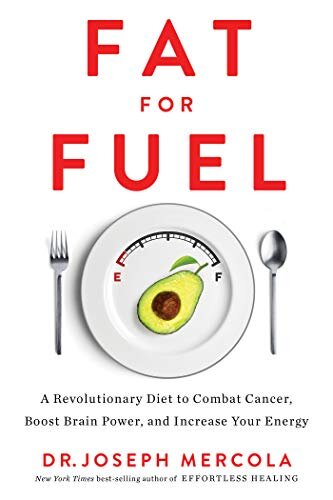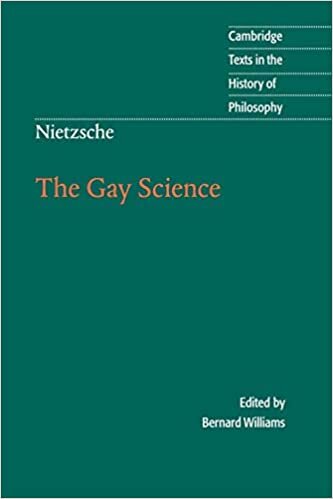Philoso-Lipid: Fat-Adjustment for the Body and Mind
For some time now I’ve had an ongoing interest in philosophy of food and in the physiology of healthy eating, perhaps because my own weight has fluctuated over the years between, say, 150 pounds at my lightest and 220 pounds at my heaviest. The link between philosophy and diet is an ancient and ongoing one, from the Epicureans’ feasting (metaphorical and literal!); to Socrates’s having fasted for mental clarity; to Marcus Aurelius’s personal physician and fellow philosopher, Galen; to Friedrich Nietzsche’s near obsession with diet and digestion as part of our embodied natures; to contemporary issues in philosophy of food.
I recently stumbled on the following two lectures by Dr. Pradip Jamnadas, which are perhaps the best overview of the misconceptions most of us have had, for decades now, about the American diet and what is truly healthy. The first video is about the benefits of fasting, and the second video is about diet and the dangers of sugar and carbohydrates for our overall health:
While I want to focus on another concept shortly, the concept of fat adjustment, everyone would benefit from a very clear statement of Dr. Jamnadas’s overall conclusion, which is that the real culprit in so many of our health problems—from diabetes to cardiovascular disease to dimensia—are sugar and carbohydrates, not fat as we have been told, by the government and even by health professionals, for 50 years now. The long and the short of it is that the most direct route to future health is cutting out sugar and carbohydrates, and instead going with a high-fat (good fats!), moderate-protein diet to reduce your insulin levels, insulin being the root cause of many health problems that have plagued modern/contemporary human beings.
I also recently stumbled on the term “phospholipid,” which, not being a chemist or biologist myself, I accidentally misread as "philoso-lipid,” a neologism that I’ve perhaps just coined, and which I rather liked when I first uttered it because our brains and our bodies are, in fact, fat-loving. Our brains, after all, are nearly 60 percent fat, and, as Dr. Jamnadas points out, the human body actually thrives on a hight-fat diet, even if we must undergo a period of so-called “fat-adjustment” in order to wean ourself off our contemporary and culturally pervasive addiction to sugar and carbohydrates—especially in the form of highly processed wheat and corn products.
(Avocados are nature’s perfect high-fat food, full of healthy Omega-3 fatty acids.)
It’s no secret to anyone by now that Friedrich Nietzsche is my favorite philosopher in the Western canon of philosophy, even given my complementary love of lofty rationalists and idealists like Plato and Descartes. In several places, Nietzsche wrote about the need for an adjustment to the metaphorical diet of his own writings and ideas, of the need to wean ourselves from the lower-quality intellectual, or literal, diets of Western culture in general, of German culture in particular, and of the mediocrity of the herd with its averaging quality that serves only to drag down our authentic human spirits. So, in addition to the fat-adjustment of our bodies, there is often a type of intellectual fat-adjustment as well, as we wean ourselves off of our intellectual crutches and learn to stand on our own two existential feet as real humans and thinkers.
Although Nietzsche obviously didn’t use the phrase “fat-adjustment,” consider the following statements from Nietzsche about the way in which a kind of intellectual adjustment is necessary to wean ourselves from our habitual ways of thinking and being, and to really adjust to a diet of richer ideas (and even sometimes richer food, literally):
Strong teeth and good digestion too —
this I wish thee!
And once my book’s agreed with you,
then surely you’ll agree with me!(Nietzsche, “To My Reader,” ‘Joke, Cunning, and Revenge’: Prelude in German Rhymes, No. 54, The Gay Science)
You whine that nothing pleases you?
Still pouting, friend, and must you mutter?
I hear you curse, and shout and sputter —
it breaks my heart and patience too!
Come with me, friend! A nice fat toad,
if swallowed voluntarily
with eyes closed and summarily —
might lessen your dyspeptic load.(Nietzsche, “Medication for Pessimists,” ‘Joke, Cunning, and Revenge’: Prelude in German Rhymes, No. 24, The Gay Science)
I am much more interested in another question,—a question upon which the "salvation of humanity" depends to a far greater degree than it does upon any piece of theological curiosity: I refer to nutrition. For ordinary purposes, it may be formulated as follows: "How precisely must thou feed thyself in order to attain to thy maximum of power, or virtù in the Renaissance style,—of virtue free from moralic acid?" My experiences in regard to this matter have been as bad as they possibly could be; I am surprised that I set myself this question so late in life, and that it took me so long to draw "rational" conclusions from my experiences. Only the absolute worth-lessness of German culture—its "idealism"—can to some extent explain how it was that precisely in this matter I was so backward that my ignorance was almost saintly. This "culture," which from first to last teaches one to lose sight of actual things and to hunt after thoroughly problematic and so-called ideal aims, as, for instance, "classical culture"—as if it were not hopeless from the start to try to unite "classical" and "German" in one concept. It is even a little comical—try and imagine a "classically cultured" citizen of Leipzig!—Indeed, I can say, that up to a very mature age, my food was entirely bad—expressed morally, it was "impersonal," "selfless," "altruistic," to the glory of cooks and all other fellow-Christians. It was through the cooking in vogue at Leipzig, for instance, together with my first study of Schopenhauer (1865), that I earnestly renounced my "Will to Live." To spoil one's stomach by absorbing insufficient nourishment—this problem seemed to my mind solved with admirable felicity by the above-mentioned cookery. (It is said that in the year 1866 changes were introduced into this department.) But as to German cookery in general—what has it not got on its conscience! Soup before the meal (still called alla tedesca in the Venetian cookery books of the sixteenth century); meat boiled to shreds, vegetables cooked with fat and flour; the degeneration of pastries into paper-weights! And, if you add thereto the absolutely bestial post-prandial drinking habits of the ancients, and not alone of the ancient Germans, you will understand where German intellect took its origin—that is to say, in sadly disordered intestines.... German intellect is indigestion; it can assimilate nothing.
Here are a few more indications as to my morality. A heavy meal is digested more easily than an inadequate one. The first principle of a good digestion is that the stomach should become active as a whole. A man ought, therefore, to know the size of his stomach. For the same reasons all those interminable meals, which I call interrupted sacrificial feasts, and which are to be had at any table d'hôte, are strongly to be deprecated. Nothing should be eaten between meals, coffee should be given up—coffee makes one gloomy. Tea is beneficial only in the morning. It should be taken in small quantities, but very strong. It may be very harmful, and indispose you for the whole day, if it be taken the least bit too weak. Everybody has his own standard in this matter, often between the narrowest and most delicate limits. In an enervating climate tea is not a good beverage with which to start the day: an hour before taking it an excellent thing is to drink a cup of thick cocoa, feed from oil. Remain seated as little as possible, put no trust in any thought that is not born in the open, to the accompaniment of free bodily motion—nor in one in which even the muscles do not celebrate a feast. All prejudices take their origin in the intestines. A sedentary life, as I have already said elsewhere, is the real sin against the Holy Spirit.
(Nietzsche, Ecce Homo: How One Becomes What One Is, Excerpts from “Why I Am So Clever”)
(According to Friedrich Nietzsche, the quality of our thinking intimately tied up with the quality of our diet, which is clear in his lamentation about the low quality of German diet and the resulting low quality of German culture. A physical and mental retraining is necessary to wean ourselves off subpar food and subpar ideas—and subpar ideals.)
A key problem behind all addictions is that many of us don’t realize that we are addicted, that we are addicts, in the first place. Whether we’re addicted to sugar and carbohydrates or addicted to an intellectually subpar diet of ideas and beliefs, we are adjusted to the familiar, and we are often unwilling to go through the pain, the physical and intellectual withdrawal symptoms, to readjust ourselves to a literal and figurative high-fat diet of richer food and richer ideas that will really nourish us—our bodies and our minds.
Even if Nietzsche’s writings—or my own writings, for that matter—are not the right high-fat diet for you yourself in particular, we should all be wary of the danger that we have become too accustomed, too adjusted, too addicted to our own worldviews, our own assumptions, to our own culturally reinforced ways of living and thinking and being. We should be wary of the danger that the core tenets of our worldviews, in some Wittgensteinian or Kuhnian sense, are not freely chosen but are thrust upon us day after day by others, by the culture in which we were born and to which we awaken every single day, and by our blindness to our own intellectual and cultural traditions and addictions, in the same way that we are blind to how much sugar we ingest because it comes in myriad hidden forms—processed flour, prepackaged food products, and so on.
We too-often live on a prepackaged intellectual diet as well, with all the questions and answers about the nature of reality, about the meaning and purpose of life, neatly packaged and presented to us ready for so-called digestion, a low-fat simulacrum of real thinking and real understanding, only to find out later that those prepackaged intellectual carbohydrates are as poisonous to the health of our minds and spirits as prepackaged food products are to the health of our bodies—too much intellectual sugar and carbohydrates and not enough intellectual protein and fat, not enough real substance, not enough real thinking and real authenticity, not enough real digestion.
For Further Reading:
Fat For Fuel: A Revolutionary Diet to Combat Cancer, Boost Brain Power, and Increase Your Energy by Dr. Joseph Mercola
The Gay Science by Friedrich Nietzsche
Ecce Homo: How One Becomes What One Is by Friedrich Nietzsche












